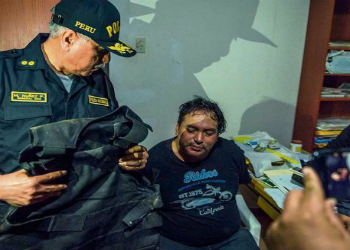The arrest in Peru of a mayoral delegate and dozens of his suspected accomplices for running a violent land trafficking scheme highlights how decentralizing political power opens more avenues for organized crime on the local level.
On June 12, Peruvian authorities arrested 33 alleged members of the “Injertos de Nuevo Ayacucho,” a criminal gang that had been in business for over twenty years, reported El Comercio.
Authorities believe the group was led by Yhosbel García Buasbek, also known as “Gordo,” a special elected mayoral delegate of Nuevo Ayacucho, a town in Cañete municipality. The group was dedicated to land trafficking, authorities said. Specifically, they said it invaded private lands in Cañete and the neighboring Chincha municipality, forcibly displacing the property owners, then selling the properties to private investors.
In order to run his criminal network, García hired a hit squad that took on the name “Cañete exterminators.” Authorities estimated the group killed at least 50 people since 1995, and 8 in 2016 alone. Among the arrested suspects, which by June 14 had reached 37, are four policemen, three active and one retired policeman.
“The urban expansion into the outskirts of cities has given birth to criminal mafias that seek to steal land from others,” Interior Minister Carlos Basombrío was reported by La República as saying.
InSight Crime Analysis
García is not the first Peruvian authority at the municipal level to be linked with crime. In 2014, a study by the Attorney General’s Office found that 92 percent of the country’s mayors were being investigated for corruption, while at least 345 candidates in the elections scheduled for October that year had been convicted of an illicit activity.
SEE ALSO: Peru News and Profiles
But the struggle to break the links between local political representatives and criminal groups is likely to be a slow and difficult process. As InSight Crime has previously noted, the increased decentralization of authority and financial responsibility in Peru and in other parts of the region has given local officials more control over budgets and security policies. This, in turn, has opened the door for more corruption and penetration of organized crime into the local power bases.
In García’s case, he was said to be working with a construction workers’ union and was using his official connections to help him resell his stolen properties.

